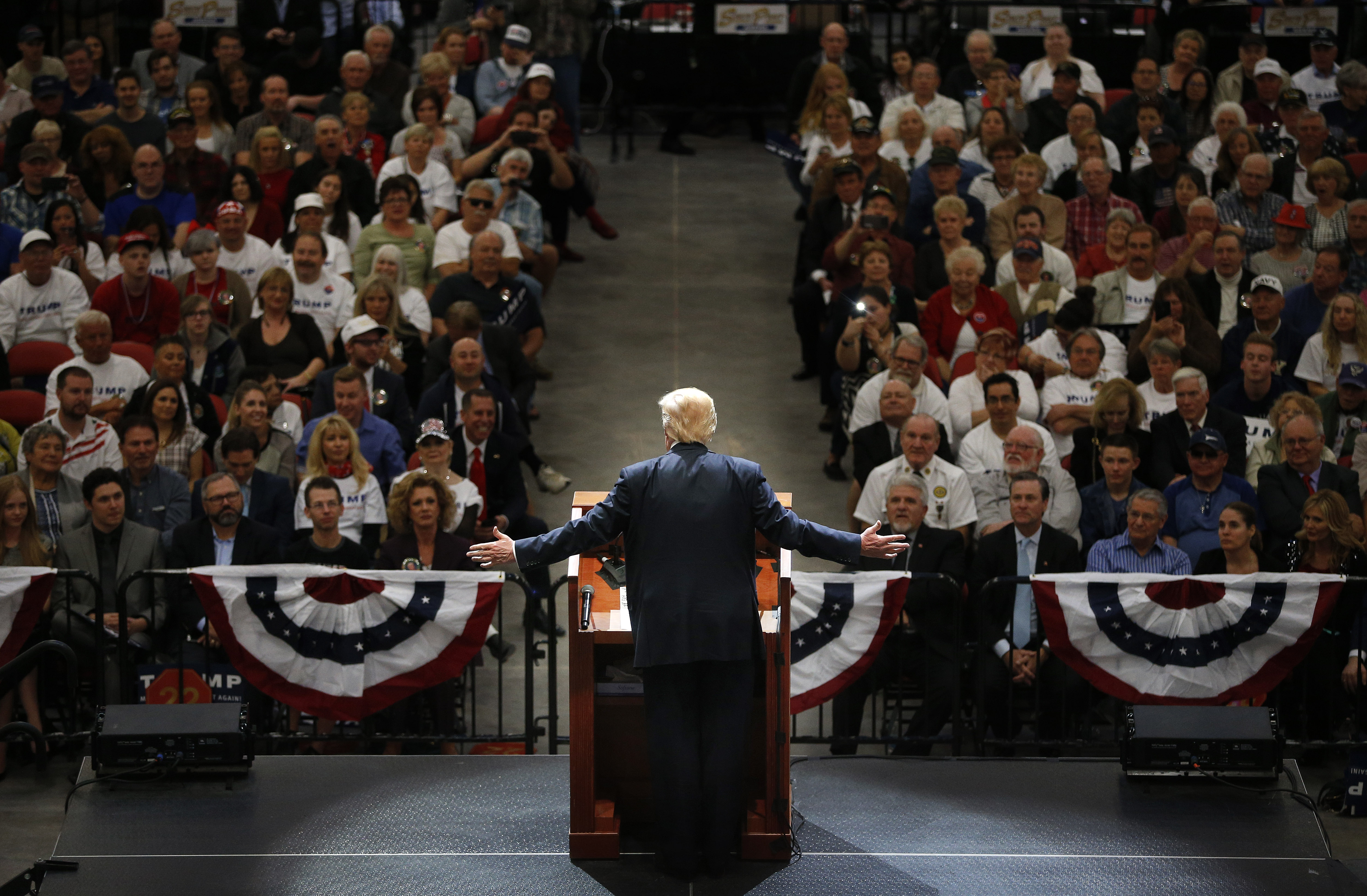Donald Trump is a great man
At least in terms of altering the course of history...


A free daily email with the biggest news stories of the day – and the best features from TheWeek.com
You are now subscribed
Your newsletter sign-up was successful
One of the oldest debates in the world is: What moves historical events? Is it major historical trends, such as demography, economics, or ideas? Or is it men and women, through their own choices, who decide how the needle of history shifts? These days, the latter concept — often called "the great man theory of history" — is usually dismissed with a smirk.
I mention this because Donald Trump is obviously a great man.
I don't mean great in terms of goodness, of course. As a conservative, I'm not happy that Trump essentially dynamited the conservative movement and besmirched the honor of the party of Lincoln by winning its primary at least in part through appeals to white supremacy. I'm not happy that the man who is about to occupy the Oval Office seems both unprepared and too temperamentally unstable for the job. But you don't have to be good to be great.
The Week
Escape your echo chamber. Get the facts behind the news, plus analysis from multiple perspectives.

Sign up for The Week's Free Newsletters
From our morning news briefing to a weekly Good News Newsletter, get the best of The Week delivered directly to your inbox.
From our morning news briefing to a weekly Good News Newsletter, get the best of The Week delivered directly to your inbox.
Now, it's obvious that Trump benefited from strong social forces, such as the discontent of the American white working class over globalization, but it also seems inconceivable that anyone but Donald Trump could have pulled off what he did. Plenty of politicians, like Mike Huckabee and Rick Santorum, and Pat Buchanan before them, enjoyed some success with the same sort of populist message that Trump employed. None of them won their party's nomination, much less the American presidency.
But Trump did. A tabloid fixture for decades, he had a top-rated reality show that portrayed him as a hyper-competent and tough businessman. He had his Twitter account and his inimitable style, which so discombobulated journalists as it attracted wall-to-wall coverage. He was, in short, a unique force.
Now he will be president of the United States, for good or ill, and if one thing is certain, it's that it will have momentous consequences one way or another. But it's worth recalling the countless individual choices that made it possible. First, he could simply have declined to run, which he had every reason to do and which he had done before. Second, any number of things could have derailed his candidacy. Conservatives and the Republican establishment could have united behind an anti-Trump candidate. The Republican convention delegates could have refused to nominate him, and the RNC could have refused to support him with the resources that proved crucial to his victory. Hillary Clinton could have decided not to run a private email server.
At every step of the way, individuals could have made choices that might have left us with a President-elect Rubio, or Cruz, or Clinton, with significant historical consequences. Meanwhile, those who confidently plotted out trends and concluded that Trump couldn't win have been proven wrong.
A free daily email with the biggest news stories of the day – and the best features from TheWeek.com
Nassim Nicholas Taleb, he of "black swan" fame, points out that even though World War I is regarded today as the inevitable result of large historical trends — the mixture of nationalism and the industrial revolution — it was not at all seen that way by its participants and protagonists. We are consistently told that if Gavrilo Prinzip had not shot Archduke Franz Ferdinand, some other crisis, some other pretext, would have thrown Europe's warring blocs at each other's throats, and that this conflict, given technological advances and the complacent cocksureness of political leaders, would have been global in scope and atrocious in the depth of killing. But there's actually no reason to believe this. Everyone involved really could have made different choices. We tell ourselves that such historical catastrophes were "inevitable" to soothe our collective guilt, but that is an illusion.
I used to believe that while history is pushed along by strong impersonal forces, every once in a while great men can and do change the course of history. But after watching a "great man" up close, I now take a slightly more nuanced view: Impersonal forces still matter very much, but one reason why is because too many people believe they have no power to change history, that their choices do not matter. We could have many more great men and women, in other words, if more people believed they could become one.
Say what you will about Donald Trump, at least he should be recognized for his contributions to epistemology.
Pascal-Emmanuel Gobry is a writer and fellow at the Ethics and Public Policy Center. His writing has appeared at Forbes, The Atlantic, First Things, Commentary Magazine, The Daily Beast, The Federalist, Quartz, and other places. He lives in Paris with his beloved wife and daughter.
